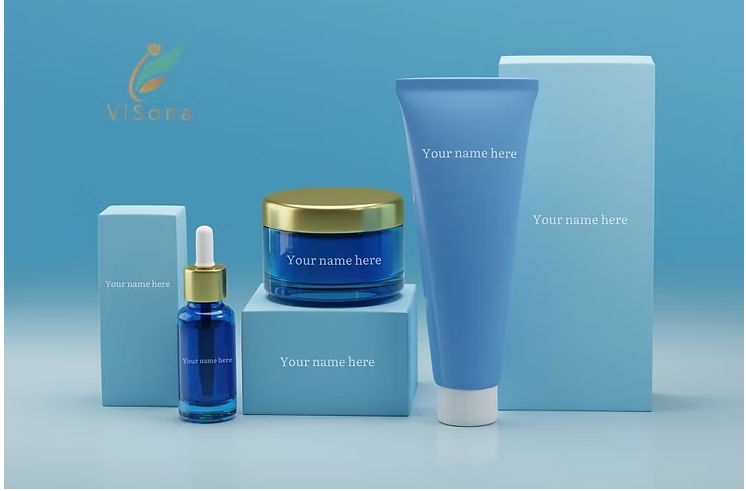For years, beauty lovers have faced a difficult decision. Many products contained hidden animal ingredients, were tested on animals, or offered little transparency. Shoppers increasingly questioned whether looking good had to come at the expense of ethics, health, and sustainability.
Now, conscious consumers demand more from beauty brands. They want cosmetics that reflect their values, from cruelty-free practices to eco-friendly packaging. This demand has opened opportunities for ethical innovation, with cosmetic manufacturers leading the way by creating vegan alternatives that are safe, sustainable, and effective.
The Rise of Vegan Beauty
Vegan beauty has evolved from a niche movement into one of the fastest-growing categories in the beauty industry. These products exclude animal-derived ingredients like beeswax, keratin, and lanolin, opting instead for sustainable, plant-based, or synthetic replacements that perform just as well.
The change is not just about ingredients but also about consumer values. People want guilt-free beauty choices that align with compassion and environmental responsibility. This trend has reshaped how brands develop, market, and deliver their products, pushing the entire industry toward more ethical practices.
Ethical and Sustainable Choices
The vegan beauty movement goes beyond avoiding animal products. Companies in this sector often design formulas with clean, skin-friendly ingredients that limit harmful chemicals. This reduces the risk of irritation and benefits customers who prefer gentle, safe alternatives for long-term use.
Sustainability plays a key role, too. Many vegan brands prioritize eco-friendly packaging, using glass containers, biodegradable materials, or refill systems. This approach appeals to environmentally conscious shoppers who care not only about the products they use but also about their environmental footprint.
Innovation in Ingredients
Replacing animal ingredients with plant-based alternatives requires creativity and science. Cosmetic researchers now use botanical extracts, seed oils, fruit enzymes, algae, and even mushroom-based compounds to mimic the functions of traditional animal-derived ingredients like collagen or gelatin.
These plant-powered ingredients often bring added skincare benefits. For example, aloe vera hydrates, while fruit acids brighten and exfoliate. Algae deliver antioxidants that protect against pollution. Such innovation demonstrates that vegan cosmetics can match or even surpass the effectiveness of conventional products.
Transparency Builds Trust
Today’s consumers want brands to be honest and open. Vegan cosmetic companies often lead by clearly labeling their products, sharing ingredient sources, and highlighting cruelty-free certifications. This builds trust while educating buyers about what they are putting on their skin.
Transparency is now becoming an expectation across the industry. Customers reward companies that prioritize clarity and ethical sourcing. Cosmetic manufacturers adapting to this standard are gaining strong reputations, proving that honesty and openness are not only ethical but also smart business strategies.
Driving Global Market Growth
The global vegan cosmetics market has expanded rapidly, reaching billions in revenue. This growth is driven by social media influencers, younger buyers, and rising awareness of cruelty-free lifestyles. As awareness spreads, vegan beauty is shifting from a trend into a permanent industry standard.
Even major beauty corporations are responding by acquiring vegan startups, reformulating classic products, or introducing cruelty-free collections. The popularity of vegan cosmetics is not slowing down, with analysts predicting steady growth for the next decade as consumers continue prioritizing ethical options.
Meeting Consumer Expectations
Modern beauty shoppers are informed, curious, and demanding. They want products that not only deliver results but also reflect personal values. Vegan cosmetics meet these needs by combining ethical practices with performance-driven formulas that rival traditional alternatives.
High-quality vegan makeup and skincare prove that cruelty-free does not mean compromise. From long-lasting lipsticks to hydrating serums, these products demonstrate that luxury and ethics can work hand in hand, reshaping consumer expectations for good.
Challenges Ahead
While vegan cosmetics are thriving, the path forward is not without challenges. Some animal-based ingredients are difficult to replace without affecting texture, performance, or shelf life. Research and innovation are crucial to overcoming these scientific hurdles.
Another challenge lies in labeling. "Vegan" is not regulated uniformly worldwide, which can confuse consumers. Brands must navigate these differences while maintaining trust. Fortunately, increasing advocacy and clearer certifications are helping set global standards for the future.
Looking Toward the Future
Vegan cosmetics are not just a passing trend but the future of beauty. As science advances, more innovative plant-based solutions will emerge, making vegan products even more effective and appealing to a broader audience.
This cultural and commercial shift is setting new expectations for the industry. With continued innovation, responsible sourcing, and consumer awareness, vegan beauty will likely become the default standard, transforming the global landscape of skincare and makeup.
Conclusion: The Path Ahead for Vegan Beauty
The evolution of cruelty-free cosmetics is redefining beauty standards. Vegan products reflect a growing desire for compassion, sustainability, and transparency. By responding to these values, brands are reshaping not only their offerings but also the way the entire industry operates worldwide.
This transformation shows that beauty and ethics can coexist. As innovation continues, companies like ViSona LLC reflect how modern businesses are aligning with these values. Vegan beauty proves that compassion-driven practices not only uplift consumers but also strengthen the future of the beauty industry.



